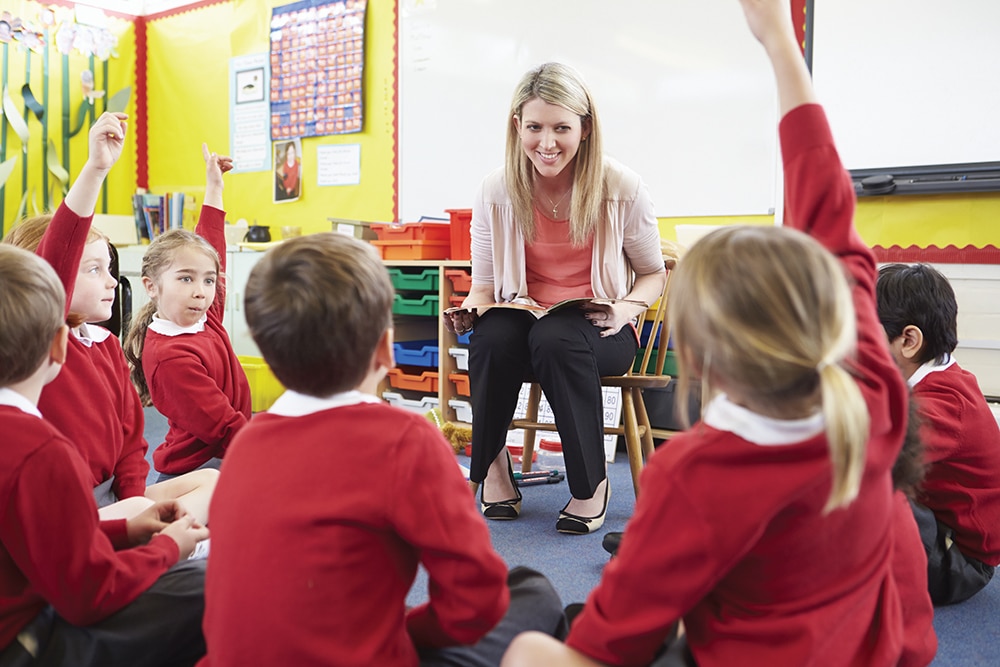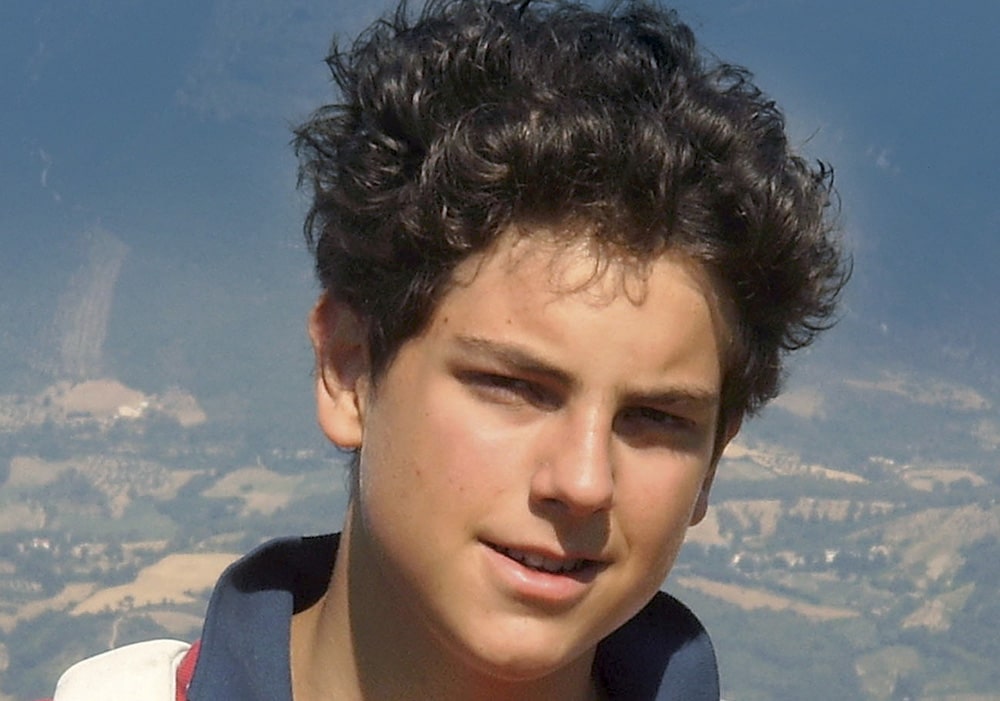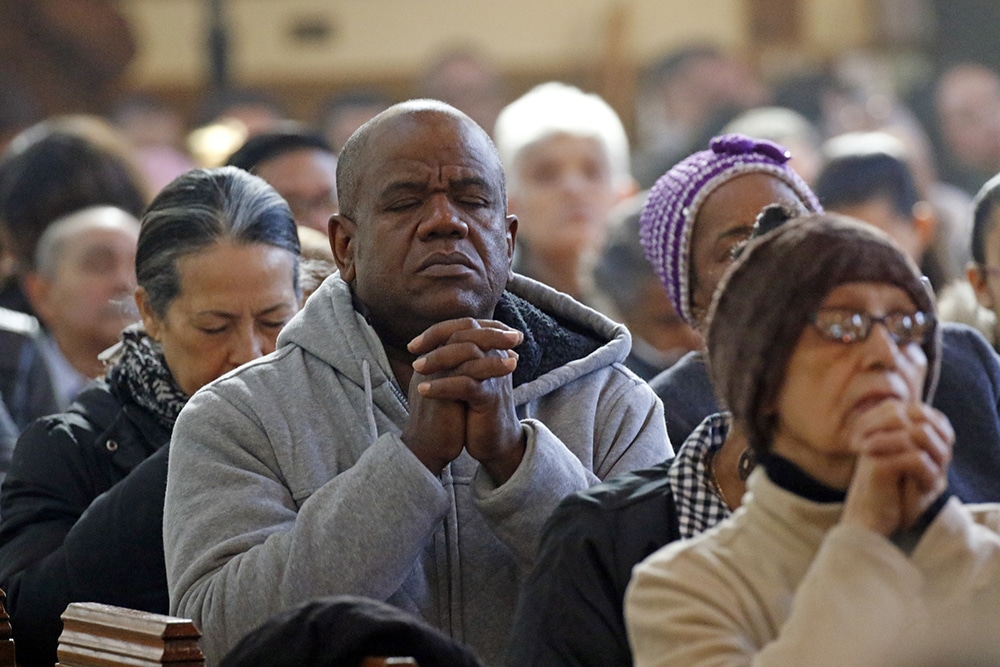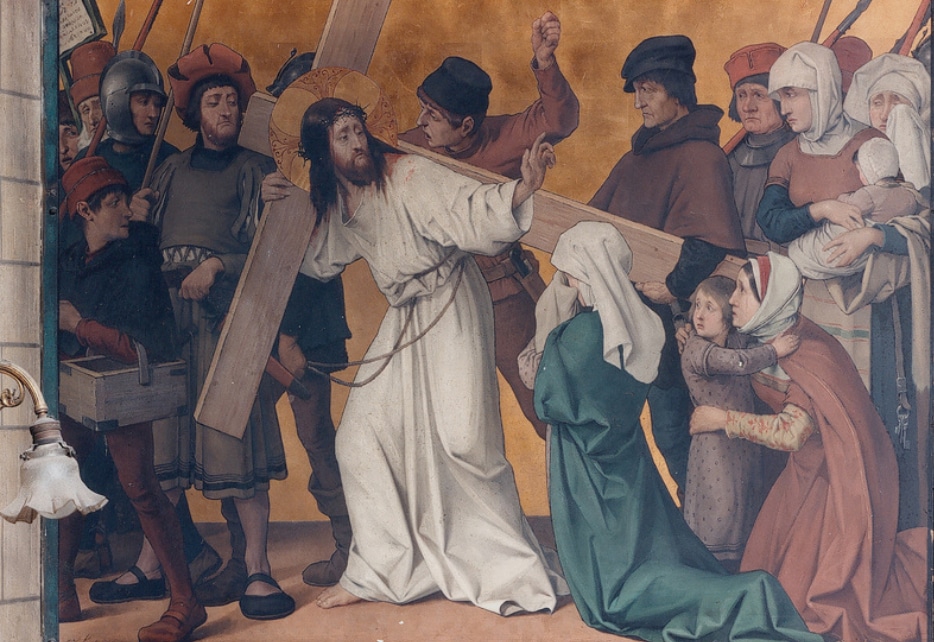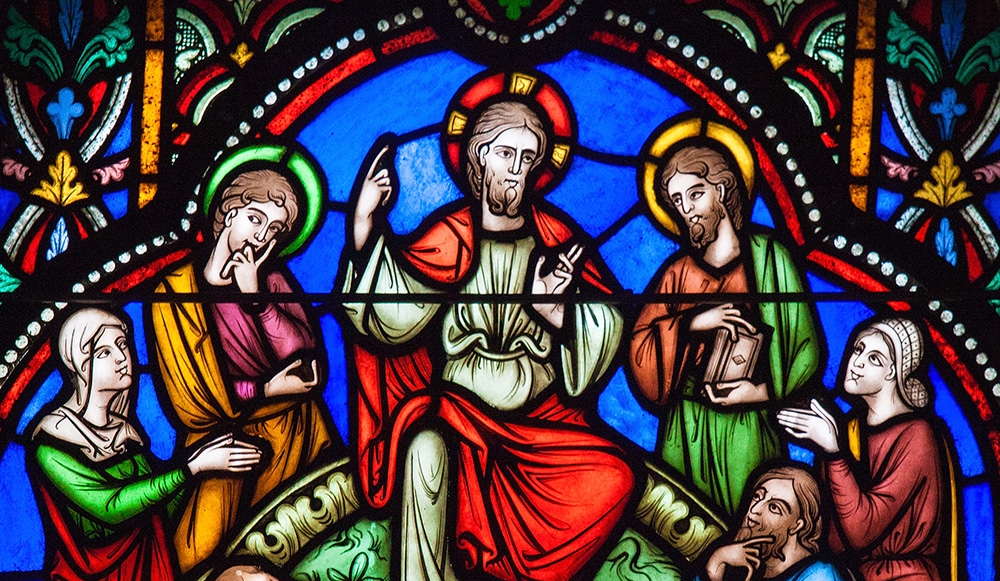What would Fred Rogers do?
Students in early education disciplines explore that question in a class by the same name at Saint Vincent College in Latrobe, Pennsylvania. It’s the hometown of the legendary creator of “Mister Rogers’ Neighborhood” on PBS.
They learn that Rogers would treat children with kindness and dignity, and love them for who they are.
“Fred Rogers was a pioneer in how we approach children and in child development,” said Dana Winters, faculty director of the Fred Rogers Center on campus. “One thing he was really adamant about was how we should appreciate and love children for who they are right now, not for who they will be in the future, not for who they will become. We are teaching our students who are preparing to be teachers to appreciate children in the moment.”
The Fred Rogers Center houses a small museum and archives of Rogers’ life, work and television show. Students in the Fred Rogers Scholars program are trained in his philosophies, plus there are research opportunities at Incubator 143, named for Rogers’ favorite number — his adult weight and the number of letters in “I love you.”
It’s not just Rogers who influences the future teachers. There’s also the Benedictine traditions of hospitality, service and finding God in people and in the ordinary things of life.
“We are very cognizant in the education department to help these young teachers realize that you have to support the whole child, whether emotionally, spiritually or physically with food and clothing,” said Kathleen Beining, head of the Early Childhood Education program. “You have to be able to work in cohesion with the family and work with them as an important part of a child’s life. The Benedictine hospitality and friendship are glaringly evident in our programs. We really focus on building empathetic teachers.”
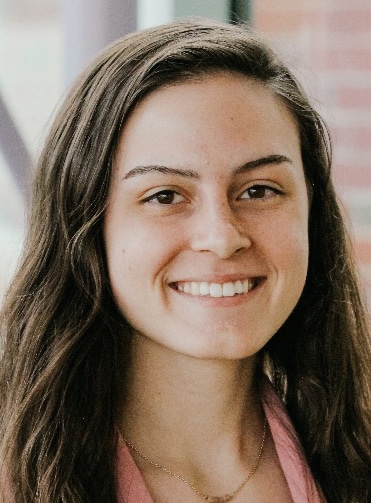
Sarah O’Callaghan, 21, of Columbia, Maryland, is a Fred Rogers Scholar in the Early Childhood Learning program.
“I’ve learned the importance of developing meaningful relationships with my future students because our professors take the time to develop meaningful relationships with us,” she said. “That helped me in my student teaching experience.”
O’Callaghan went to China for a work study program that included spending time with foster children with disabilities.
“My experience with the legacy of Fred Rogers continuously reminds me that regardless of the time, place or circumstances, a child is a child,” she said. “They deserve to be treated with dignity and appreciated as human beings. That aligns perfectly with the Catholic message of caring for one another as well.”
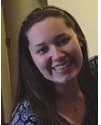
Marisa Maicke, 21, of Germantown, Maryland, has wanted to teach elementary school ever since she was young.
“I chose the Early Childhood Education program at Saint Vincent because the faculty, curriculum and the field experiences are unique, innovative and engaging,” she said. “The Catholic faith was subtly present but not as much as the overpowering values of the late Mr. Fred Rogers. The value of kindness is absolutely in our education department.”
The annual Sports Friendship Day was one of her most influential campus experiences. The whole student body comes together to be buddies with visitors of all ages who have disabilities.
“We guide them through fun events like crafts and sports,” Maicke said. “This experience enlightened me with the Benedictine value of hospitality. As a teacher, I want to warmly welcome children into my classroom in a fully-inclusive environment free of prejudice and full of compassion.”
| Teaching students with different needs |
|---|
|
Special education programs at Catholic colleges and universities prepare future teachers to respond with compassion and support in teaching and nurturing children who have limitations or significant variations in their learning capacity. It’s part of the Catholic belief in social justice and in the dignity of all life.
Kelley Barger is a professor of education and director of Reading Programs in the Department of Elementary and Special Education at Fontbonne University in St. Louis. “We train our teacher candidates to first look to the human needs in all students and strive to meet their needs,” Barger said. “We try to see those limitations as differing ways of achieving goals.” She recently witnessed an education student helping a struggling third grade reader “find himself in a book.” After many tutoring sessions, she learned that he loved soccer. So she brought a book about a young soccer player and talked to the boy about the protagonist’s dream of playing the sport. “After they talked about what he loved, they both opened the book and read together,” Barger said. “They walked hand in hand back to reading.” |
Service oriented teaching
The discipline of math and a math teacher who inspired Anthony Gomez to change his life led him to the education program at the University of Dallas.
“I wanted to have the same impact on my future students as he had on me,” he said. “I decided to go into teaching to fulfill a need I saw growing up. We are here to serve, not to be served, and the role of teacher is one of the most rewarding underappreciated paths one could take.”
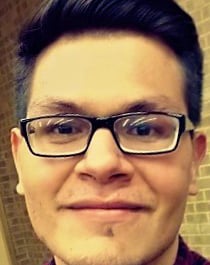
Gomez, 24, from Perth Amboy, New Jersey, is a fifth-year student pursuing a master’s degree and plans to teach math at the secondary level. While the subject doesn’t have opportunities to bring faith into classroom discussions, he wants to create the Catholic sense of community and an environment based on love of neighbor. He wants it to be, he said, “where everyone respects everyone and thus all the students will feel safe to share, explore and learn.”
Barbara Khirallah, who teaches Child Growth and Child Development, notes that the University of Dallas draws students from “amazing families,” many with strong Catholic foundations of values and ethics. There’s also the influencing campus presence of Dominican men and women.
“It’s second nature to incorporate Catholic values, like the moral development of a child, into the course work,” she said. “We are very proud of our teacher education program and of the students that we educate. Every child deserves to have a teacher such as the kind of young people who graduate from our program.”

Mary Goodykoontz, 21, is a senior from Chandler, Arizona. Teaching elementary education has been her dream since second grade.
“What I like about teaching, what I really love, is being the kind of role model that someone can look up to,” she said. “A lot of students don’t always have that, and I think it’s very important for them to have a positive role model in their lives. I want that to be me, and I’m very excited about that in the future.”
Living as a Christian
Jennifer Weber, assistant professor of education at Mount Marty College in Yankton, South Dakota, noted that making human connection is at the heart of learning. That starts with a future teacher’s years on campus, then continues with their own students.
“We believe that each of our students is a child of God, that each one is a gift worthy of learning and worthy of developing,” she said. “We are working with people who have feelings and hopes and dreams and gifts, and all learning really stems from that.”
Jadrien Long from Beatrice, Nebraska, is a junior with a major in physical education. She feels like she’s part of a big campus family with the professors looking out for students.
“That teaches us how important it is to make meaningful relationships with our future students,” she said.
She plans to incorporate her faith-based values into her teaching. That won’t be difficult at a Catholic school, but, she added, “I believe that if I am at a public setting, the way that I present myself as an individual, how I handle adversity and challenges, how I treat others can all reflect my personal faith. I know that I can incorporate my faith through these simple acts, by acting and living as a Christian would.”
Maryann Gogniat Eidemiller writes from Pennsylvania.
| The importance of education |
|---|
|
“The family which has the primary duty of imparting education needs help of the whole community. In addition, therefore, to the rights of parents and others to whom the parents entrust a share in the work of education, certain rights and duties belong indeed to civil society, whose role is to direct what is required for the common temporal good. Its function is to promote the education of youth in many ways, namely: to protect the duties and rights of parents and others who share in education and to give them aid; according to the principle of subsidiarity, when the endeavors of parents and other societies are lacking, to carry out the work of education in accordance with the wishes of the parents; and, moreover, as the common good demands, to build schools and institutions.
“Finally, in a special way, the duty of educating belongs to the Church, not merely because she must be recognized as a human society capable of educating, but especially because she has the responsibility of announcing the way of salvation to all men, of communicating the life of Christ to those who believe, and, in her unfailing solicitude, of assisting men to be able to come to the fullness of this life. The Church is bound as a mother to give to these children of hers an education by which their whole life can be imbued with the spirit of Christ and at the same time do all she can to promote for all peoples the complete perfection of the human person, the good of earthly society and the building of a world that is more human. …
“Among all educational instruments the school has a special importance. It is designed not only to develop with special care the intellectual faculties but also to form the ability to judge rightly, to hand on the cultural legacy of previous generations, to foster a sense of values, to prepare for professional life. Between pupils of different talents and backgrounds it promotes friendly relations and fosters a spirit of mutual understanding; and it establishes as it were a center whose work and progress must be shared together by families, teachers, associations of various types that foster cultural, civic, and religious life, as well as by civil society and the entire human community.
“Beautiful indeed and of great importance is the vocation of all those who aid parents in fulfilling their duties and who, as representatives of the human community, undertake the task of education in schools. This vocation demands special qualities of mind and heart, very careful preparation, and continuing readiness to renew and to adapt.”
— Gravissimum Educationis, No. 3, 5
|

